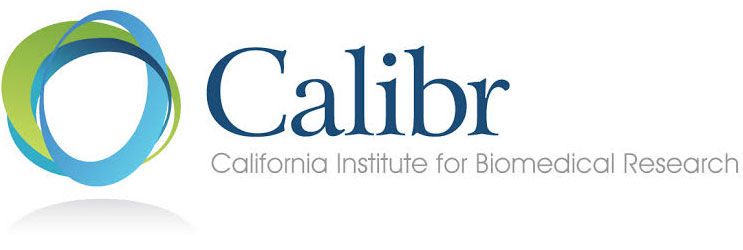预约演示
更新于:2025-05-07
Idiopathic Inflammatory Myopathies
特发性炎症性肌病
更新于:2025-05-07
基本信息
别名 IDIOPATHIC INFLAMM MYOPATHIES、IIM、IMM + [18] |
简介 An umbrella term for diseases which have chronic muscle inflammation and weakness of unknown etiology. The types of idiopathic inflammatory myopathy are further defined by either clinicopathologic criteria or by the presence of certain autoantibodies. |
关联
38
项与 特发性炎症性肌病 相关的药物靶点 |
作用机制 C5抑制剂 |
在研机构 |
非在研适应症- |
最高研发阶段批准上市 |
首次获批国家/地区 美国 |
首次获批日期2023-08-18 |
靶点 |
作用机制 BCMA抑制剂 |
在研机构 |
原研机构 |
非在研适应症- |
最高研发阶段批准上市 |
首次获批国家/地区 中国 |
首次获批日期2023-06-30 |
作用机制 FcRn拮抗剂 [+2] |
在研机构 |
原研机构 |
在研适应症 |
非在研适应症- |
最高研发阶段批准上市 |
首次获批国家/地区 美国 |
首次获批日期2023-06-20 |
95
项与 特发性炎症性肌病 相关的临床试验NCT06913608
A Phase lb Open-Label Study Evaluating the Safety and Efficacy of the Combination of CLBR00l, an Engineered Autologous T Cell Product, and SWI019, a CD19-directed Antibody-based Biologic With or Without Lymphodepletion in Subjects With Autoimmune Disorders Including Systemic Lupus Erythematosus, Systemic Sclerosis, or Idiopathic Inflammatory Myositis
The goal of this clinical trial is to evaluate CLBR001 and SWI019 as a treatment for patients with autoimmune disorders, including systemic lupus erythematosus, systemic sclerosis, and idiopathic inflammatory myositis. Patients will be randomized 1:1 lymphodepletion vs no lymphodepletion arm. Patients will be administered a single infusion of CLBR001 cells followed by cycles of SWI019 with regular assessments of safety and disease response to treatment.
The goals are to establish the safety and efficacy of the combination therapy and determine if lymphodepletion is required for efficacy.
The goals are to establish the safety and efficacy of the combination therapy and determine if lymphodepletion is required for efficacy.
开始日期2025-05-01 |
NCT06916806
An Open-label, Phase I Study to Assess the Safety, Tolerability, Pharmacokinetics, and Pharmacodynamics of AZD5492 Following Single-ascending Dose and Step-up Dose Administration to Adult Participants With Systemic Lupus Erythematosus or Idiopathic Inflammatory Myopathies
The purpose of this study is to measure the safety, tolerability, PK, and PD of AZD5492 administered subcutaneously in adult participants with SLE or IIM.
Study details include:
• The study duration will be a minimum of 180 days in addition to the screening period.
Additional follow-up visits may be required up to 12 months from study start.
* Depending on the study part they are assigned to, participants will be administered AZD5492 once (Part 1) or twice (Part 2).
* Study visits will occur at:
Screening, Days 1-4, 8, 15, 22, 30, 60, 90, 120, 150, and 180 in Part 1, Screening, Days 1-4, 8-11, 15, 22, 29, 43, 60, 90, 120, 150, and 180 in Part 2.
Study details include:
• The study duration will be a minimum of 180 days in addition to the screening period.
Additional follow-up visits may be required up to 12 months from study start.
* Depending on the study part they are assigned to, participants will be administered AZD5492 once (Part 1) or twice (Part 2).
* Study visits will occur at:
Screening, Days 1-4, 8, 15, 22, 30, 60, 90, 120, 150, and 180 in Part 1, Screening, Days 1-4, 8-11, 15, 22, 29, 43, 60, 90, 120, 150, and 180 in Part 2.
开始日期2025-04-15 |
申办/合作机构  AstraZeneca PLC AstraZeneca PLC [+1] |
CTIS2024-513681-19-00
A randomized, double-blind, placebo-controlled Phase II proof of concept study evaluating efficacy and safety of Upadacitinib in patients with idiopathic inflammatory myopathies after withdrawal of intravenous immunoglobulins (IVIG) (IVIG-Spare) - IVIG-SPARE Trial
开始日期2025-03-31 |
申办/合作机构 |
100 项与 特发性炎症性肌病 相关的临床结果
登录后查看更多信息
100 项与 特发性炎症性肌病 相关的转化医学
登录后查看更多信息
0 项与 特发性炎症性肌病 相关的专利(医药)
登录后查看更多信息
3,317
项与 特发性炎症性肌病 相关的文献(医药)2025-12-31·Pulmonology
Early detection of interstitial lung disease in rheumatic diseases: A joint statement from the Portuguese Pulmonology Society, the Portuguese Rheumatology Society, and the Portuguese Radiology and Nuclear Medicine Society
Review
作者: Pereira, J.M. ; Freitas, S. ; Fernandes, M.O. ; Branco, J.C. ; Duarte, A.C. ; Marques, I.D. ; Cordeiro, A. ; Morais, A. ; Khmelinskii, N. ; Bernardes, M. ; Pinto, P. ; Borba, A. ; Pinto-Basto, R. ; Alfaro, T. ; Ruano, C. ; Calha, J. ; Campainha, S. ; Salvador, M.J.
2025-12-01·Inflammation Research
A window into intracellular events in myositis through subcellular proteomics
Article
作者: Morais, Jose ; Nestor-Kalinoski, Andrea L ; Herzallah, Dema M ; Peterson, Jennifer M ; Zahedi, René P ; Di Battista, John A ; Alamr, Mazen ; Hudson, Marie ; Oyebode, Olumide E ; Leclair, Valérie
2025-08-01·Seminars in Arthritis and Rheumatism
Fatigue is common in myositis and is associated with disease activity
Article
作者: George, Tissa Bijoy ; Aggarwal, Rohit ; Dianxu, Ren ; Keret, Shiri ; Oddis, Chester V ; Moghadam-Kia, Siamak ; Pillai, Anjana Chandrasekhara
160
项与 特发性炎症性肌病 相关的新闻(医药)2025-04-30
在医学领域,专家共识发挥着举足轻重的作用。专家共识能够迅速捕捉并反映出医学领域的最新动态,尤其是在那些科学研究尚未完全明确的临床问题上,它们为医生们提供了极具价值的参考。此外,专家共识还具有学术权威性,它们经过了严格的审查和讨论,可以作为临床医疗行为的重要参考。在共识制定过程中,多学科专家的合作有助于形成更全面和平衡的推荐意见,推动医疗实践的规范化和科学化,从而提升医疗服务的质量和安全性。2025 年 4 月,由华中科技大学附属同济医院神经内科王伟教授牵头,联合国内多位神经内科领域权威专家共同撰写的《嵌合抗原受体 T 细胞治疗难治性神经系统自身免疫性疾病专家共识(2025 年版)》在《中华神经科杂志》正式发布。此共识的发布,为我国神经系统自身免疫性疾病(NADs)的临床治疗提供了全新的规范化指导,标志着我国在这一前沿治疗领域迈出了坚实的一步。神经系统自身免疫性疾病,是指因免疫系统错误攻击中枢神经系统、周围神经、神经肌肉接头、肌肉组织,导致神经功能受损的自身免疫性疾病,包括多发性硬化、重症肌无力、视神经脊髓炎谱系疾病等,严重影响患者的生活质量。尽管传统免疫抑制和调节药物在一定程度上有效,但仍有部分患者对现有治疗反应不佳。近年来,嵌合抗原受体 T(CAR-T)细胞疗法作为一种新兴的细胞免疫治疗方法,在血液肿瘤领域取得了显著成效,并逐渐拓展至难治性神经系统自身免疫性疾病的治疗研究中,展现出巨大潜力。中国专家结合神经免疫专科临床诊疗经验及 CAR-T 细胞治疗临床试验结果,充分考虑中国医疗实际需求,制定了此专家共识,涵盖了患者筛选、产品选择、治疗程序、监测流程以及不良反应处理等方面,为临床医生提供了规范、系统的指导。共识指出,目前广泛应用于临床试验并具有初步疗效和安全性的 CAR-T 细胞治疗产品多靶向 CD19 和(或)BCMA 等 B 细胞靶点,因此主要适用于 B 细胞介导或深度参与的难治性 NADs,如视神经脊髓炎谱系疾病、僵人综合征、多发性硬化、Lambert-Eaton 肌无力综合征、重症肌无力、特发性炎性肌病等,并详细阐述了不同 CAR 细胞类型及不同治疗靶点的特点。同时,共识还提出了 CAR-T 细胞回输后分阶段重点监测方案,提出在不同时间段(如淋巴细胞清除期、回输后 2 周内、回输后 3 个月内及长期监测随访阶段)动态追踪的策略,并针对治疗相关不良反应的处理、复发后处理等,提出了详细的分级管理方案,强调了多学科协作的重要性。该共识不仅为国内神经科领域推广 CAR-T 细胞治疗提供了重要的理论依据和实践指导,也为未来相关临床研究和技术创新奠定了坚实基础。免责申明:文章来源网络仅供分享,不构成任何临床诊断建议,我们尊重原创,也注重分享,图文素材来源于网络,如有违规或侵权,请及时联系我们会立即做出删除
细胞疗法免疫疗法
2025-04-16
·靶点圈
Vol.01-IL-2/IL-2R靶点概述-IL-2的生物学特性①结构特征:IL-2是由153-169个氨基酸组成的单链多肽,属于γ链细胞因子家族(γc家族),含有四个α-螺旋区域和两个折叠域,分子量为15-16kDa,其基因位于人类染色体4q26-q27,由2个内含子和5个外显子组成。②产生来源:IL-2主要由激活的CD4+T细胞分泌,可通过自分泌和旁分泌发挥作用。此外,激活的CD8+T细胞、NK细胞、自然杀伤T细胞和树突状细胞等也能少量分泌。其产生受T细胞受体(TCR)信号和共刺激信号调控,具有重要的免疫调节功能,对免疫系统的平衡至关重要。在免疫激活时迅速且短暂表达,可促进活化T细胞的克隆扩增,增强CD8+T细胞和NK细胞的细胞毒性。图1 IL-2和IL-2R基因在染色体上的定位以及蛋白质形成和组装过程IL-2R的生物学特性①结构特征:IL-2R是膜结合受体,由IL-2Rα(CD25)、IL-2Rβ(CD122)和IL-2Rγ(CD132)亚基通过非共价键组合而成,各亚基基因也有特定染色体定位,不同亚基组合形成不同亲和力的受体,三条链共同组装形成的高亲和力受体对IL-2的结合力更强,在免疫细胞的激活和功能调节中发挥关键作用。②表达调控:IL-2R的表达和功能受NFAT、AP-1等转录因子及SOCS1、FoxP3等调节剂的调控。此外,可溶性IL-2R(sIL-2R)和IL-2Rα可作为癌症诊断、预后和监测治疗效果的生物标志物,且具有潜在的治疗价值。图2 IL-2R的不同亚基以及它们的位置和意义IL-2/IL-2R系统IL-2通过与IL-2R结合激活淋巴细胞,发挥调节免疫的作用。与受体结合后,激活JAK-STAT、MAPK和PI3K-AKT等信号通路,影响Tregs、CD4⁺T细胞、CD8⁺T细胞和NK细胞等多种免疫细胞的功能。IL-2/IL-2R系统不仅存在于免疫细胞,还广泛分布于中枢神经系统的多种神经细胞中。它们在中枢神经系统中参与神经细胞的生长、存活、神经递质释放以及神经电活动的调节。图3 IL-2相关信号通路表1 参与调节IL-2/IL-2R的转录因子和调节因子IL-2/IL-2R的氨基酸序列IL-2:MYRMQLLSCIALSLALVTNSAPTSSSTKKTQLQLEHLLLDLQMILNGINNYKNPKLTRMLTFKFYMPKKATELKHLQCLEEELKPLEEVLNLAQSKNFHLRPRDLISNINVIVLELKGSETTFMCEYADETATIVEFLNRWITFCQSIISTLTIL-2α:MDSYLLMWGLLTFIMVPGCQAELCDDDPPEIPHATFKAMAYKEGTMLNCECKRGFRRIKSGSLYMLCTGNSSHSSWDNQCQCTSSATRNTTKQVTPQPEEQKERKTTEMQSPMQPVDQASLPGHCREPPPWENEATERIYHFVVGQMVYYQCVQGYRALHRGPAESVCKMTHGKTRWTQPQLICTGEMETSQFPGEEKPQASPEGRPESETSCLVTTTDFQIQTEMAATMETSIFTTEYQVAVAGCVFLLISVLLLSGLTWQRRQRKSRRTIExtracellularHelicalCytoplasmic22-240241-259260-272IL-2β:MLRLYVLVMGVSAFTLQPAAHTGAARSCRFRGRHYKREFRLEGEPVALRCPQVPYWLWASVSPRINLTWHKNDSARTVPGEEETRMWAQDGALWLLPALQEDSGTYVCTTRNASYCDKMSIELRVFENTDAFLPFISYPQILTLSTSGVLVCPDLSEFTRDKTDVKIQWYKDSLLLDKDNEKFLSVRGTTHLLVHDVALEDAGYYRCVLTFAHEGQQYNITRSIELRIKKKKEETIPVIISPLKTISASLGSRLTIPCKVFLGTGTPLTTMLWWTANDTHIESAYPGGRVTEGPRQEYSENNENYIEVPLIFDPVTREDLHMDFKCVVHNTLSFQTLRTTVKEASSTFSWGIVLAPLSLAFLVLGGIWMHRRCKHRTGKADGLTVLWPHHQDFQSYPKExtracellularHelicalCytoplasmic14-343344-369370-398IL-2γ:MLKPSLPFTSLLFLQLPLLGVGLNTTILTPNGNEDTTADFFLTTMPTDSLSVSTLPLPEVQCFVFNVEYMNCTWNSSSEPQPTNLTLHYWYKNSDNDKVQKCSHYLFSEEITSGCQLQKKEIHLYQTFVVQLQDPREPRRQATQMLKLQNLVIPWAPENLTLHKLSESQLELNWNNRFLNHCLEHLVQYRTDWDHSWTEQSVDYRHKFSLPSVDGQKRYTFRVRSRFNPLCGSAQHWSEWSHPIHWGSNTSKENPFLFALEAVVISVGSMGLIISLLCVYFWLERTMPRIPTLKNLEDLVTEYHGNFSAWSGVSKGLAESLQPDYSERLCLVSEIPPKGGALGEGPGASPCNQHSPYWAPPCYTLKPETExtracellularHelicalCytoplasmic23-262263-283284-369Vol.02-IL-2/IL-2R的生理功能及作用-IL-2/IL-2R在免疫细胞中的作用IL-2对调节性T细胞(Tregs)的胸腺发育、外周诱导、谱系稳定和稳态维持至关重要。IL-2或其受体亚基缺陷会导致Treg功能缺失,引发自身免疫疾病。此外,IL-2对CD8+T细胞和CD4+T细胞的分化和功能也有重要影响,对维持免疫平衡具有重要意义。图4 IL-2和IL-2R的生物学功能IL-2/IL-2R在肿瘤微环境中的作用在肿瘤微环境(TME)中,IL-2/IL-2R信号通路作用复杂,既可促进Tregs扩增抑制抗肿瘤免疫,也能促进细胞毒性T淋巴细胞(CTL)和自然杀伤(NK)细胞浸润增强抗肿瘤免疫。可通过调节效应T细胞和Tregs的平衡影响肿瘤生长,还与肿瘤的预后相关,失调时可能预示不良预后。此外,IL-2/IL-2R对NK细胞、巨噬细胞、中性粒细胞、B细胞、DCs和MDSCs等免疫细胞在TME中的功能均有调节作用,影响肿瘤的发生、发展和免疫逃逸。图5 IL-2/IL-2R在肿瘤微环境中的作用IL-2/IL-2R在免疫调节中的双重作用①免疫激活:IL-2作为T细胞的关键生长因子,在免疫反应启动时,促进效应T细胞的增殖和激活,增强机体对病原体的免疫防御。②免疫耐受:Tregs组成性表达高水平的IL-2Rα,能有效竞争摄取IL-2,限制效应T细胞的激活,维持免疫稳态,防止自身免疫疾病的发生。图6 由不同IL-2R组成介导的IL-2信号传导的双重作用高剂量与低剂量IL-2疗法①高剂量IL-2(HDIL-2)用于治疗转移性癌症,虽有一定疗效,但会引发严重副作用,如毛细血管渗漏综合征、低血压等,还会导致Tregs扩增和维持、血小板减少等系统异常。②低剂量IL-2(LDIL-2)疗法利用Treg对IL-2的高敏感性,选择性扩增Treg,在动物研究和临床试验中显示出良好的耐受性和一定的治疗效果,但也存在一些剂量相关的轻度至中度不良反应。图7 高剂量与低剂量IL-2疗法的对比IL-2/IL-2R在疾病中的作用①癌症免疫治疗:高剂量IL-2疗法在20世纪90年代被FDA批准用于治疗转移性黑色素瘤和转移性肾细胞癌,能够促进多种免疫细胞的生长、分化和功能发挥,增强机体的抗肿瘤免疫反应,部分患者可实现持久缓解甚至完全缓解。但高剂量IL-2疗法会引发严重副作用,限制了其广泛应用。尽管降低剂量可减少毒性,但疗效也会降低。②自身免疫性疾病治疗:低剂量IL-2疗法旨在通过选择性靶向Treg细胞上的高亲和力IL-2R,调节免疫系统,治疗自身免疫性疾病。可增加Treg细胞数量,调节免疫平衡,用于治疗如1型糖尿病、类风湿关节炎、系统性红斑狼疮和多发性硬化症等自身免疫性疾病。但其长期安全性和有效性仍需进一步研究,存在局限性,如部分患者临床症状改善不彻底、停药后疗效不佳等。③移植领域应用:在器官移植中,IL-2可促进Tregs存活,限制效应T细胞激活,诱导免疫耐受,减少移植排斥反应。低剂量IL-2疗法在动物实验和临床研究中显示出促进移植物长期存活的潜力,但仍面临选择性激活Tregs而避免激活效应T细胞的挑战。Vol.03-IL-2/IL-2R的临床应用-IL-2/IL-2R的临床药物清单表2 IL-2的临床药物表3 IL-2R的临床药物第二代IL-2疗法①分子修饰:通过PEGylation、突变、融合蛋白和糖基化等方法对recIL-2进行修饰,旨在增强其疗效、降低毒性、提高选择性。②递送系统改进:采用纳米颗粒和溶瘤腺病毒等方式改进recIL-2的递送,可实现靶向给药和控制药物释放。图8 基于IL-2的免疫疗法的新方法聚乙二醇化IL-2:通过聚乙二醇(PEG)修饰IL-2,改善其溶解度和药代动力学。如NKTR-214,是最早的PEGylated IL-2R激动剂之一,为IL-2Rβ偏向性激动剂,可优先扩增CD8+Teff和NK细胞,减少与高亲和力受体结合,降低Tregs扩增,延长半衰期,减少给药频率和毒性。此外,还有THOR-707、NL-201、STK-012和TransConIL-2β/γ等也在研发中,各有其作用特点和临床研究进展。IL-2融合蛋白:与蛋白融合可延长IL-2的半衰期(如MDNA11),可选择性激活NK和幼稚CD8⁺T细胞,在临床前模型中展现出强大的抗肿瘤功效;以及IL-2/IL-2Rα融合蛋白(如ALKS4230),能选择性刺激IL-2Rβγc,在多种癌症治疗的临床试验中进行评估。双特异性免疫分子:如GI-101、eciskafusp-alfa、simlukafusp-alfa和IBI363等,具有两个结合域,能同时靶向不同表位或抗原,分别通过不同机制发挥作用,增强药物向肿瘤的递送并产生协同效应。IL-2/mAb复合物:如ANV419、SLC-3010、AU-007、Darleukin和Daromun等,将IL-2与单克隆抗体结合,通过阻断IL-2与IL-2Rα的结合,优先激活CD8⁺T和NK细胞,部分药物已进入临床试验阶段。脂质纳米颗粒(LNP)封装的编码IL-2的mRNA:如BNT151和BNT153,利用LNP包裹编码IL-2的mRNA,进入细胞后产生IL-2,增强抗肿瘤免疫力,相关临床试验正在进行或已完成但结果未报道。溶瘤病毒:如TILT-123,是一种编码IL-2和TNF-α的溶瘤腺病毒,可破坏癌细胞,增强T细胞浸润和细胞毒性,初步显示出良好的耐受性和一定的临床反应。联合治疗方法:与免疫检查点抑制剂联合、与放疗联合、与过继细胞疗法联合以及使用正交IL-2/IL-2Rb突变对,这些联合疗法在临床前和临床试验中显示出增强抗肿瘤效果的潜力。Vol.04-IL-2/IL-2R在不同疾病的应用-慢性感染在慢性感染中,IL-2可激活耗竭的CD8+T细胞,增强其增殖能力、细胞毒性和细胞因子分泌能力,使其重新发挥抗病毒作用。IL-2还能促进记忆性CD8+T细胞的产生和维持,有助于长期控制感染。目前针对慢性感染的IL-2免疫疗法大多还处于临床前研究或早期临床试验阶段,尚未广泛应用于临床治疗。中枢神经系统疾病多发性硬化症(MS):IL-2/IL-2R基因多态性影响MS易感性,患者血清中IL-2和sIL-2R水平升高与疾病进展相关,脑脊液IL-2水平与残疾程度、疾病活动度及风险标志物相关。在实验性自身免疫性脑脊髓炎(EAE)模型中,也有类似发现。IL-2/IL-2R的相关治疗可通过调节NK细胞和Tregs功能来减轻炎症。阿尔茨海默病(AD):IL-2在AD患者中的表达模式复杂,血浆IL-2水平在疾病不同阶段有变化,与认知功能和病理改变有关。在APP/PS1小鼠等模型及临床研究中,发现IL-2在脑内的表达变化及对疾病的潜在影响。低剂量IL-2治疗可调节Tregs数量,改善认知功能。缺血性中风(IS):IS发病后,患者血清和脑内IL-2及IL-2R表达发生变化,且与预后相关,血清IL-2水平在急性期降低,之后升高,而sIL-2Rα水平与病情严重程度相关,但不同年龄段的表达变化存在差异。可通过调节IL-2/IL-2R,作用于Tregs和CD8+T细胞,可改善预后,减少脑损伤。脑炎:在不同类型脑炎中,IL-2表达不同。如抗NMDAR脑炎患者血清IL-2水平升高,HSV-1诱导的脑炎小鼠脑内IL-2等细胞因子表达上调,SSPE患者血清IL-2水平也显著升高,但IL-2与脑炎预后的关系尚不清楚。部分自身免疫性脑炎患者接受低剂量IL-2治疗有效,在感染性脑炎中,IL-2可增强免疫反应,降低死亡率。图9 IL-2在中枢神经系统疾病中的作用自身免疫性和风湿性疾病血管炎:低剂量IL-2可治疗丙型肝炎病毒(HCV)诱导的血管炎患者,能改善患者症状,扩大Treg细胞数量,减轻炎症和氧化应激。1型糖尿病(T1D):多项临床试验表明,低剂量IL-2疗法在T1D患者中耐受性良好,能有效扩增Treg群体,部分研究还观察到对胰岛β细胞功能的改善,且未发现对糖尿病控制、胰岛素需求或β细胞功能的负面影响。联合治疗虽显示出潜力,但存在脱靶效应。系统性红斑狼疮(SLE):低剂量IL-2疗法可减少SLE患者的TFH和TH17细胞的频率,增加TFR细胞的频率,促进Treg细胞的扩增,改善疾病严重程度,降低感染风险,部分患者疾病活动度降低,且安全性良好,不同研究在剂量、治疗方案和持续时间上有所差异。干燥综合征:低剂量IL-2可逆转原发性干燥综合征患者外周血中TH17细胞和Treg细胞的失衡状态,但还需体内实验进一步验证。类风湿关节炎:低剂量IL-2治疗可能恢复循环中的Treg细胞,减轻疾病活动度。皮肌炎和特发性炎症性肌病:低剂量IL-2治疗可增加Treg细胞数量,改善患者临床症状和缓解情况。自身免疫性肝炎:在自身免疫性肝炎小鼠模型中,低剂量IL-2治疗可增加循环和肝脏内的Treg细胞,改善肝脏特异性ALT水平。在临床病例中,该疗法安全有效,能限制肝脏损伤,其益处可能主要源于Treg细胞的增加。其他疾病:在缺血性心脏病、溃疡性结肠炎等炎症性疾病的临床试验中显示出一定潜力,还在蛛网膜下腔出血损伤、严重斑秃和骨髓增生异常综合征等疾病的治疗中进行探索。但在肌萎缩侧索硬化症(ALS)的试验中未显示出临床疗效,可能与治疗持续时间较短有关。表4 IL-2治疗自身免疫性疾病和风湿性疾病的临床试验移植慢性移植物抗宿主病(GVHD):低剂量IL-2治疗可有效诱导Treg介导的免疫耐受,促进其存活、增殖和胸腺输出,对常规T细胞影响较小,使部分患者临床症状改善,恢复Treg细胞的稳态。造血干细胞移植(HSCT):在HSCT患者中,低剂量IL-2治疗可诱导Treg和NK细胞增加,在预防GVHD和促进移植物抗白血病效应方面有一定效果,部分患者症状改善且能减少糖皮质激素用量。然而,该疗法也存在感染并发症、影响抗体反应等问题,其长期效果和风险仍需进一步研究。实体器官移植(SOT):动物实验表明,低剂量IL-2在不同SOT模型中效果各异。在一些模型中,它可增加Treg数量、延长移植物存活时间;但在非人类灵长类动物的肾脏移植模型中,却会引发排斥反应,提示在SOT中使用低剂量IL-2需谨慎。目前关于低剂量IL-2在SOT中的临床研究较少,已有的一项肝移植临床试验因安全问题提前终止。总结与展望RenyuBioIL-2治疗面临的主要挑战是在免疫刺激和免疫抑制之间难以平衡。高剂量用于癌症治疗时毒性大,低剂量用于自身免疫性疾病治疗时效果有限且可能存在安全隐患。未来需要关注降低毒性、激活肿瘤特异性记忆T细胞反应,并根据患者的免疫状态和肿瘤特征进行个性化治疗,进一步优化IL-2的使用策略,如精准的剂量调控、开发更有效的IL-2变体,以及探索联合治疗方案,以充分发挥其治疗潜力,满足不同疾病的治疗需求。抗体发现服务 & 产品01羊驼免疫&骆驼免疫—自建现代化养殖农场02万亿级天然抗体库产品—轻松DIY科研抗体03配套产品—助您轻松搭建基因工程抗体平台关于仁域生物成都仁域生物成立于2019年1月,是一家专注基因工程抗体技术和天然抗体库开发的公司,拥有优化的噬菌体展示抗体库技术和现代化的骆驼/羊驼养殖免疫基地。可为客户提供14天、100%成功率的先导抗体分子发现服务,彻底解决传统抗体定制的周期长、失败率高、成本高三大难题。目前已经成功完成300+靶点抗体筛选项目!protocol 获取 / 产品咨询邮箱|find@renyubio.com电话|19136178673地址|成都市经开区科技产业孵化园关注我们,持续更新中参考文献Tanigawa K, Redmond WL. Current landscape and future prospects of interleukin-2 receptor (IL-2R) agonists in cancer immunotherapy. Oncoimmunology. 2025 Dec;14(1):2452654.Paul P, Choong C, Heinemann J, Al-Hallaf R, Agha Z, Ganatra S, Abdulrahman L, Sinha A, Kumar H, Nourbakhsh B, Hamad ARA. The Lasting Impact of IL-2: Approaching 50 Years of Advancing Immune Tolerance, Cancer Immunotherapies, and Autoimmune Diseases. Immunol Invest. 2025 Mar 17:1-15.Zhang Y, Kong Q, Fan J, Zhao H. Interleukin-2 and its receptors: Implications and therapeutic prospects in immune-mediated disorders of central nervous system. Pharmacol Res. 2025 Mar;213:107658.Roser LA, Sommer C, Ortega Iannazzo S, Sakellariou C, Waibler Z, Gogesch P. Revival of recombinant IL-2 therapy - approaches from the past until today. J Immunotoxicol. 2024 Oct;21(sup1):S38-S47. Im SJ, Lee K, Ha SJ. Harnessing IL-2 for immunotherapy against cancer and chronic infection: a historical perspective and emerging trends. Exp Mol Med. 2024 Sep;56(9):1900-1908.Shouse AN, LaPorte KM, Malek TR. Interleukin-2 signaling in the regulation of T cell biology in autoimmunity and cancer. Immunity. 2024 Mar 12;57(3):414-428. Rokade S, Damani AM, Oft M, Emmerich J. IL-2 based cancer immunotherapies: an evolving paradigm. Front Immunol. 2024 Jul 24;15:1433989. Sprent J, Boyman O. Optimising IL-2 for Cancer Immunotherapy. Immune Netw. 2024 Jan 26;24(1):e5.Zhang R, Zhao Y, Chen X, Zhuang Z, Li X, Shen E. Low-dose IL-2 therapy in autoimmune diseases: An update review. Int Rev Immunol. 2024 May;43(3):113-137. Lykhopiy V, Malviya V, Humblet-Baron S, Schlenner SM. "IL-2 immunotherapy for targeting regulatory T cells in autoimmunity". Genes Immun. 2023 Oct;24(5):248-262.Muhammad S, Fan T, Hai Y, Gao Y, He J. Reigniting hope in cancer treatment: the promise and pitfalls of IL-2 and IL-2R targeting strategies. Mol Cancer. 2023 Jul 29;22(1):121. Hernandez R, Põder J, LaPorte KM, Malek TR. Engineering IL-2 for immunotherapy of autoimmunity and cancer. Nat Rev Immunol. 2022 Oct;22(10):614-628.Zhou P. Emerging mechanisms and applications of low-dose IL-2 therapy in autoimmunity. Cytokine Growth Factor Rev. 2022 Oct;67:80-88.Graßhoff H, Comdühr S, Monne LR, Müller A, Lamprecht P, Riemekasten G, Humrich JY. Low-Dose IL-2 Therapy in Autoimmune and Rheumatic Diseases. Front Immunol. 2021 Apr 1;12:648408.
细胞疗法临床结果临床研究免疫疗法
2025-04-13
yuanBio·News药监资讯1、NMPA |《药品生产许可证》发放新规2025年4月7日,国家药监局发布了《药品生产许可证》管理新规定,要求7月1日以后发放的许可证应统一以电子证照二维码形式管理,正本、副本的纸质版和电子证照应分别标注二维码;自2026年1月1日起,扫描二维码应准确显示企业基本信息、车间和生产线情况、委/受托生产情况等情况。(点击查看相关阅读)(来源:国家药品监督管理局)2、CDE | 关于基因治疗产品的征求意见稿2025年4月8日,CDE发布,公开征求《重组腺相关病毒载体类体内基因治疗产品申报上市药学共性问题与解答(征求意见稿)》意见,征求意见时限为自发布之日起一个月。(来源:国家药品监督管理局药品审评中心)3、CFDI |《工艺验证检查指南》2025年4月7日,国家药监局审核查验中心发布了《工艺验证检查指南》,对工艺验证方法、工艺验证实施策略及要求进行了说明。(点击查看相关阅读)(来源:国家药品监督管理局食品药品审核查验中心)4、国家药品不良反应监测中心 | 2024年药品不良反应监测报告发布2025年4月7日,国家药品不良反应监测中心发布的《国家药品不良反应监测年度报告(2024年)》显示,2024年全国药品不良反应监测网络收到《药品不良反应/事件报告表》259.7万份,我国每百万人口平均报告数为1842份,全国98.7%的县级地区报告了药品不良反应/事件。(点击查看相关阅读)(来源:中国食品药品检定研究院)5、江苏药监局 | 药品上市后变更沟通系统上线运行2025年4月7日,江苏药监局发布了《关于江苏省药品上市后变更管理沟通交流系统上线运行的公告》,自2025年4月8日起,上线运行上市后变更管理沟通交流系统,不再接收通过邮寄或电子邮件等方式提交的沟通交流申请材料。(点击查看相关阅读)(来源:江苏省药品监督管理局)受理情况CDE受理情况2025年4月3日-4月9日期间,中国国家药监局药品审评中心(CDE)共受理药品464个,其中生物制品65个(新药27个和进口15个)。上下滑动查看(点击可查看大图)(来源:国家药品监督管理局药品审评中心)融资动态3月生物医药领域投融资事件据不完全统计,2025年3月全国生物医药企业融资事件26起,过亿元融资企业达到15家,总金额估计达30亿人民币以上。(来源:自贸壹号SimbayPark)企业动态1、先声药业 | 针对晚期实体瘤ADC新药获批临床2025年4月9日,CDE官网公示,先声药业旗下先祥医药申报的1类新药注射用SIM0686获批临床,拟开发治疗FGFR2b阳性的局部晚期/转移性实体瘤。公开资料显示,这是一款靶向FGFR2b的抗体偶联药物(ADC),先声药业拟开发该产品治疗胃癌和肺癌等晚期恶性肿瘤。本次是该产品首次在中国获批IND。这是先声药业继SIM0505(靶向CDH6的ADC)于今年1月在中国获批IND之后,又一款ADC癌症新药获批临床。(来源:CDE官网、医药观澜)2、正大天晴 | 3款1类创新药获批临床2025年4月8日,正大天晴3款抗体类1类创新药——TQB2934(BCMA/CD3双抗)、TQB2922(EGFR/c-Met双抗)、TQC2938(ST2单抗)接连针对新适应症获批临床,新增适应症分别为治疗成人系统性轻链型淀粉样变、联合已上市其他抗肿瘤药物治疗晚期恶性肿瘤、治疗季节性过敏性鼻炎。(来源:CDE官网、正大天晴官微)3、BMS | O+Y 双免疫疗法新适应症在美国获批2025年4月8日,BMS宣布,美国FDA批准Opdivo(纳武利尤单抗)联合Yervoy(伊匹木单抗) 用于一线治疗不可切除或转移性高微卫星不稳定性(MSI-H)或错配修复缺陷(dMMR)的成人和儿童(12 岁及以上)结直肠癌(CRC)患者。新闻稿显示,此次批准比PDUFA目标日期提前了两个多月。此前2024年10月,该适应症已在中国获批上市。 (来源:BMS官网)4、Allogene Therapeutics | 通用CD19/CD70 CAR-T获FDA三项自免适应症的快速通道认证2025年4月7日,Allogene Therapeutics宣布新一代通用双靶点CD19/CD70 CAR-T疗法ALLO-329获FDA的快速通道认证,用于治疗系统性红斑狼疮(SLE)、炎症性肌病(IIM)、系统性硬化症(SSc)三项自免适应症。(来源:Allogene Therapeutics官网)5、烁星生物 | 全球首创双靶点抗肿瘤药SM2275获FDA临床试验批准2025年4月5日,烁星生物宣布,其自主研发的全球首创双靶点纳米多抗抗肿瘤药物SM2275已获得美国食品药品监督管理局(FDA)临床试验申请(IND)批准,标志着该创新药物正式进入临床开发阶段。(来源:烁星生物官微)6、阿斯利康、第一三共 | 德曲妥珠单抗在华申报新适应症2025年4月3日,CDE官网公示,由第一三共申报的注射用德曲妥珠单抗一项新适应症上市申请获得受理。德曲妥珠单抗(trastuzumab deruxtecan;英文商品名:Enhertu)是一款靶向HER2的抗体偶联药物,由阿斯利康和第一三共联合开发,此前已经在中国获批4项适应症。此次申报尚未披露具体适应症。根据公开资料,德曲妥珠单抗治疗HER2表达实体瘤适应症正在中国处于上市申报阶段,这是一类“不限癌种”的适应症。(来源:CDE官网、医药观澜)END编辑:芝麻核桃声明:本文仅代表作者个人观点,不代表任何组织及本公众号立场,如有不当之处,敬请指正。如需转载,请注明作者及来源:蒲公英Biopharma。近期课程推荐线上4月16日 临床试验软件合规必修课:从理论到实践线上4月17日 解锁新版药典:生物药质量分析实战应用专题研讨会
申请上市抗体药物偶联物基因疗法
分析
对领域进行一次全面的分析。
登录
或

生物医药百科问答
全新生物医药AI Agent 覆盖科研全链路,让突破性发现快人一步
立即开始免费试用!
智慧芽新药情报库是智慧芽专为生命科学人士构建的基于AI的创新药情报平台,助您全方位提升您的研发与决策效率。
立即开始数据试用!
智慧芽新药库数据也通过智慧芽数据服务平台,以API或者数据包形式对外开放,助您更加充分利用智慧芽新药情报信息。
生物序列数据库
生物药研发创新
免费使用
化学结构数据库
小分子化药研发创新
免费使用




